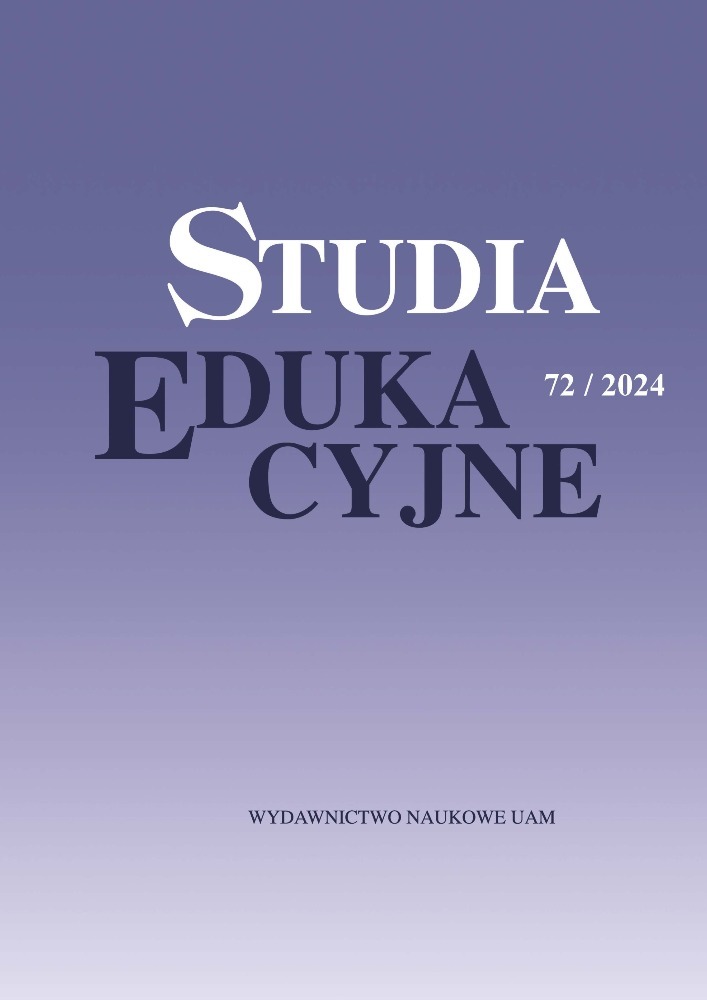Abstrakt
Is it widely known what inclusion is? Is there a difference between inclusion and integration? There are many opinions and answers that reveal a low level of understanding. The certain elusiveness of inclusion is both an advantage and a pitfall. The ambiguity of interpretation allows for greater reflection and exploration. However, it also hinders society-wide understanding since meaning is only given to inclusion by individuals through a unique understanding tied to individual experience and context of meaning. We present here our take on the issue, deliberately raising questions without requiring strict answers, as an inspiration for welcome discussion and reflection.
Bibliografia
Braumová, Z. (2022). Školní krůčky k niternosti. Praha: H&H.
Čáp, J., Mareš, J. (2007). Psychologie pro učitele. Praha: Portál.
Drtilová, J., Koukolík, F. (1994). Odlišné dítě. Praha: Vyšehrad.
Fink, E. (1978). Grundfragen der systematischen Pädagogik. Freiburg: Rombach.
Hábl, J. (2017). Aby člověk neupadal v nadčlověka. Červený Kostelec: Pavel Mervart.
Hartl, P., Hartlová, H. (2010). Velký psychologický slovník. Praha: Portál.
Horyna, B. et al. (1998). Filosofický slovník. Olomouc: Nakladatelství Olomouc.
Janata, M. (2022). Voda a diamanty. Hodnoty – zlo – dobro. Praha: Malvern.
Kroupová, K. (2016). Slovník speciálněpedagogické terminologie: vybrané pojmy. Praha: Grada Květoňová, L. et al. (2020). Lze vychovávat k úctě a sebeúctě? Praha: UK.
Lechta, V. (2016). Inkluzivní pedagogika. Praha: Portál.
Olšovský, J. (2018). Slovník filosofických pojmů současnosti. Praha: Vyšehrad.
Pelcová, N. (2001). Vzorce lidství. Praha: ISV nakladatelství.
Ricoueur, P. (1993). Já hodné uznání a úcty. Filosofický časopis 1/1993.
Thorén, F. (1942). Z ohně a vzduchu jsem… (III.). Praha: Světový literární klub.
Weber, M. (1998). Základní sociologické pojmy. In: Metodologie, sociologie a politika. Praha: OIKOYMENH.
Artiles, A.J., Kozleski, E.B., Dorn, S., Christensen, C.A. (2006). Chapter 3: learning in inclusive education research: re-mediating theory and methods with a transformative agenda. Review of Research in Education, 30(1), 65-108. DOI: https://doi.org/10.3102/0091732X030001065
Braumová, Z. (2023). Inkluze se odehrává v mysli. Esej o inkluzivních hodnotách odkazu Malého prince. Gramotnost, pregramotnost a vzdělávání: Žáci se speciálními vzdělávacími po-třebami v kontextu vzdělávání. 19, 1(7), 87-97. DOI: https://doi.org/10.14712/25337890.3143
Florian, L., Spratt, J. (2013). Enacting inclusion: a framework for interrogating inclusive practice. European Journal of Special Needs Education, 28(2), 119-135. DOI: https://doi.org/10.1080/08856257.2013.778111
Lever, R., Sénéchal, M. (2011). Discussing stories: on how a dialogic reading intervention improves kindergartners’ oral narrative construction. Journal of Experimental Child Psychol-ogy, 108(1), 1-24. DOI: https://doi.org/10.1016/j.jecp.2010.07.002
Rieser, R. (2009). Inclusion, empowerment and the vital role of disabled people and their thinking. Inclusive Education Across Cultures: Crossing Boundaries, Sharing Ideas, 365-379. DOI: https://doi.org/10.4135/9788132108320.n25
Simplican, S.C., Leader, G., Kosciulek, J.F., Leahy, M.J. (2015). Defining social inclusion of people with intellectual and developmental disabilities: an ecological model of social networks and community participation. Research in Developmental Disabilities, 38, 18-29. DOI: https://doi.org/10.1016/j.ridd.2014.10.008
Licencja
Prawa autorskie (c) 2024 Zdeňka Braumová, Pavel Kliment

Utwór dostępny jest na licencji Creative Commons Uznanie autorstwa 4.0 Międzynarodowe.

